Filter by
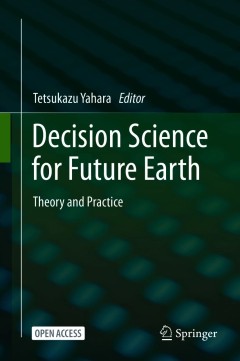
Decision science for future Earth : theory and practice
This open access book provides a theoretical framework and case studies on decision science for regional sustainability by integrating the natural and social sciences. The cases discussed include solution-oriented transdisciplinary studies on the environment, disasters, health, governance and human cooperation. Based on these case studies and comprehensive reviews of relevant works, including l…
- Edition
- 1
- ISBN/ISSN
- 9789811586323
- Collation
- xi, 251p. : ill.
- Series Title
- -
- Call Number
- 338.927 DEC d
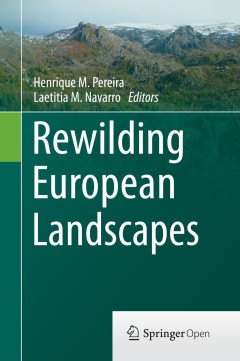
Rewilding European landscapes
Some European lands have been progressively alleviated of human pressures, particularly traditional agriculture in remote areas. This book proposes that this land abandonment can be seen as an opportunity to restore natural ecosystems via rewilding. We define rewilding as the passive management of ecological successions having in mind the long-term goal of restoring natural ecosystem processes.…
- Edition
- -
- ISBN/ISSN
- 9783319120393
- Collation
- xxi; 227 PG; ill.
- Series Title
- -
- Call Number
- 333.7 REW r
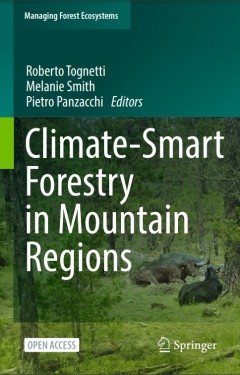
Climate-Smart Forestry in Mountain Regions
This open access book offers a cross-sectoral reference for both managers and scientists interested in climate-smart forestry, focusing on mountain regions. It provides a comprehensive analysis on forest issues, facilitating the implementation of climate objectives. This book includes structured summaries of each chapter. Funded by the EU’s Horizon 2020 programme, CLIMO has brought togethe…
- Edition
- 12
- ISBN/ISSN
- 9783030807672
- Collation
- xxiii; 574p; ill.
- Series Title
- -
- Call Number
- 634.9 CLI R
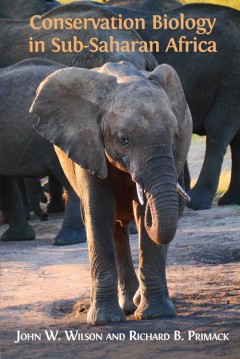
Conservation biology in Sub-Saharan Africa
Conservation Biology in Sub-Saharan Africa comprehensively explores the challenges and potential solutions to key conservation issues in Sub-Saharan Africa. Easy to read, this lucid and accessible textbook includes fifteen chapters that cover a full range of conservation topics, including threats to biodiversity, environmental laws, and protected areas management, as well as related topics s…
- Edition
- -
- ISBN/ISSN
- 9781783747528
- Collation
- 694 p. : ill.
- Series Title
- -
- Call Number
- 334 WIL c
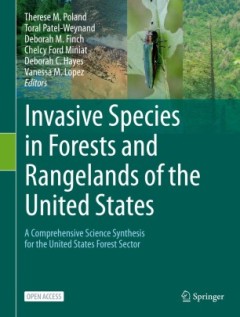
Invasive species in forests and rangelands of the United States : a comprehen…
This open access book describes the serious threat of invasive species to native ecosystems. Invasive species have caused and will continue to cause enormous ecological and economic damage with ever increasing world trade. This multi-disciplinary book, written by over 100 national experts, presents the latest research on a wide range of natural science and social science fields that explore the…
- Edition
- -
- ISBN/ISSN
- 9783030453671
- Collation
- xlii, 455p. : ill.
- Series Title
- -
- Call Number
- 577 INV i
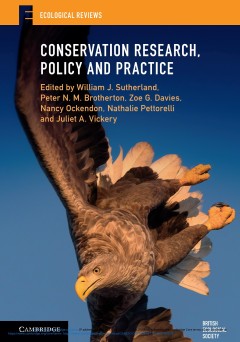
Conservation research, policy and practice
Conservation research is essential for advancing knowledge but to make an impact scientific evidence must influence conservation policies, decision making and practice. This raises a multitude of challenges. How should evidence be collated and presented to policymakers to maximise its impact? How can effective collaboration between conservation scientists and decision-makers be established? How…
- Edition
- -
- ISBN/ISSN
- 9781108638210
- Collation
- xvi, 335p. : ill.
- Series Title
- -
- Call Number
- 333.72 CON c
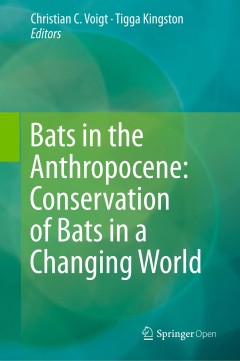
Bats in the anthropocene : conservation of bats in a changing world
This book focuses on central themes related to the conservation of bats. It details their response to land-use change and management practices, intensified urbanization and roost disturbance and loss. Increasing interactions between humans and bats as a result of hunting, disease relationships, occupation of human dwellings, and conflict over fruit crops are explored in depth. Finally, contribu…
- Edition
- -
- ISBN/ISSN
- 9783319252209
- Collation
- ix, 606p. : ill.
- Series Title
- -
- Call Number
- 639.9794 BAT b
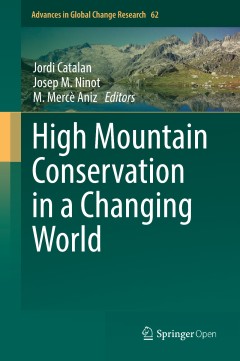
High mountain conservation in a changing world
This book aims to provide case studies and a general view of the main processes involved in the ecosystem shifts occurring in the high mountains, and to analyse the implications for nature conservation. Although case studies from the Pyrenees are preponderant, conclusions are aimed at any mountain range surrounded by highly populated lowland areas. The chapters give emphasis to approaches from …
- Edition
- -
- ISBN/ISSN
- 9783319559827
- Collation
- xiv, 413p. : ill.
- Series Title
- -
- Call Number
- 577.53 HIG h
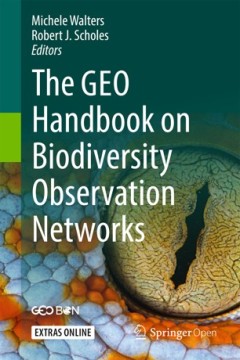
The GEO handbook on biodiversity observation networks
Biodiversity observation systems are almost everywhere inadequate to meet local, national and international (treaty) obligations. As a result of alarmingly rapid declines in biodiversity in the modern era, there is a strong, worldwide desire to upgrade our monitoring systems, but little clarity on what is actually needed and how it can be assembled from the elements which are already present. T…
- Edition
- -
- ISBN/ISSN
- 9783319272887
- Collation
- xii, 326p. : ill.
- Series Title
- -
- Call Number
- 577 GEO g
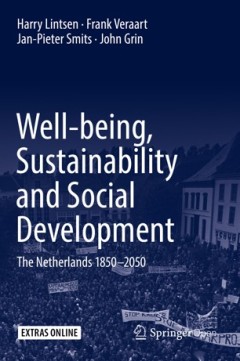
Well-being, Sustainability and Social Development : The Netherlands 1850–2050
This open access book examines more than two centuries of societal development using novel historical and statistical approaches. It applies the well-being monitor developed by Statistics Netherlands that has been endorsed by a significant part of the international, statistical community. It features The Netherlands as a case study, which is an especially interesting example; although it wa…
- Edition
- -
- ISBN/ISSN
- 9783319766966
- Collation
- xxxii, 572p. : ill.
- Series Title
- -
- Call Number
- 113 WEL w
 Computer Science, Information & General Works
Computer Science, Information & General Works  Philosophy & Psychology
Philosophy & Psychology  Religion
Religion  Social Sciences
Social Sciences  Language
Language  Pure Science
Pure Science  Applied Sciences
Applied Sciences  Art & Recreation
Art & Recreation  Literature
Literature  History & Geography
History & Geography